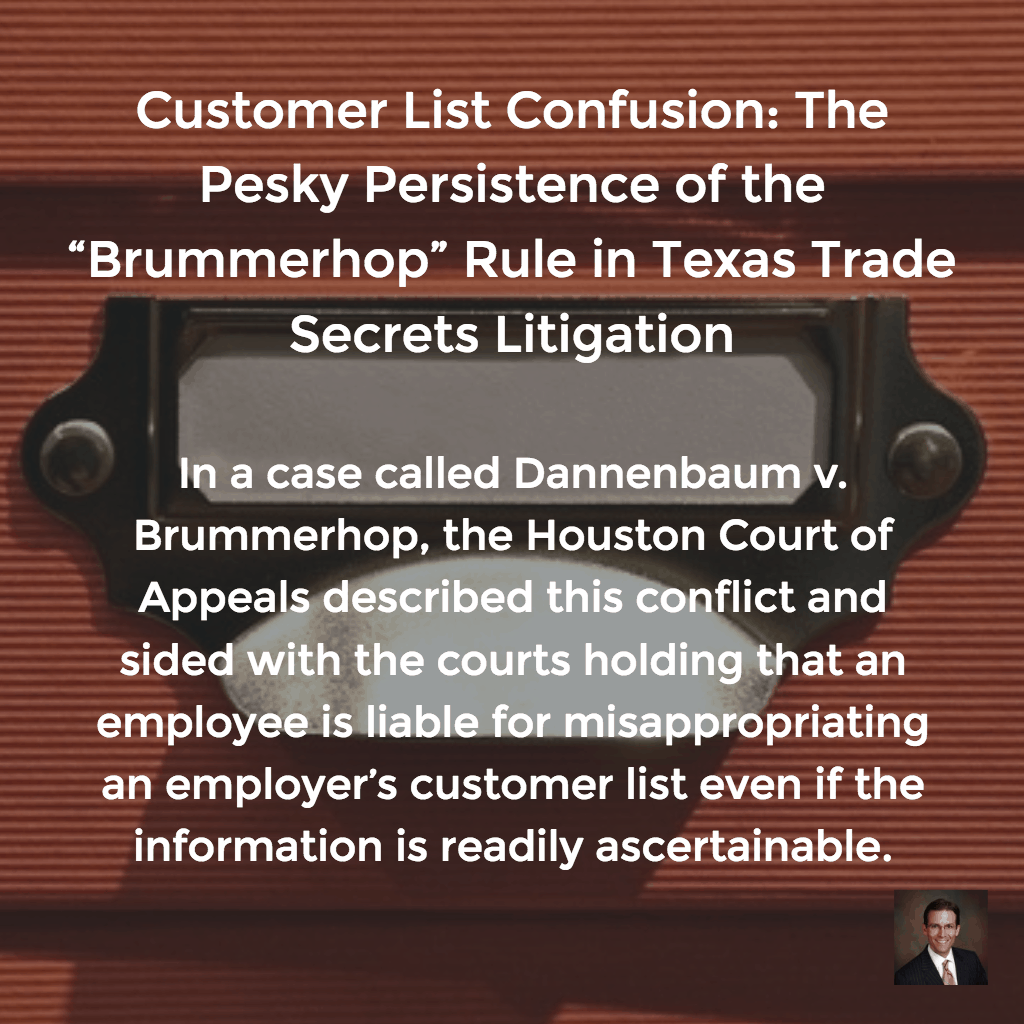ARCHIVED CONTENT
You are viewing ARCHIVED CONTENT released online between 1 April 2010 and 24 August 2018 or content that has been selectively archived and is no longer active. Content in this archive is NOT UPDATED, and links may not function.Extract from article by Zach Wolfe
As Patrick Keating recently reported on his excellent trade secrets blog, some Texas courts seem to be ignoring the definition of “misappropriation” in the Texas Uniform Trade Secrets Act (TUTSA). Despite the plain language of the statute, some Texas courts have held there is no “misappropriation” in the common situation where an employee initially acquires the secret through proper means but later uses or discloses it in violation of a duty to maintain its secrecy. As Vince Lombardi might say, “what the ****’s going on out here?!”
I’ve noticed that some Texas courts are also confused about customer lists as trade secrets. They think that a misappropriated customer list can be a “trade secret”even if the information in the list is “readily ascertainable” by competitors. This view persists despite the fact that the Texas Uniform Trade Secrets Act defines a “trade secret” as not “generally known” and not “readily ascertainable” to others in the industry.[1] How can Texas courts be getting this so wrong?






















